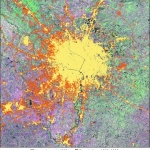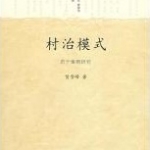Articles tagged with: xiangtupai
China Studies, LangYan, Rural China »
The introduction to the Chinese Sociology and Anthropology (Fall 2008, Vol. 41, No. 1) issue on the Central China School of Rural Studies-edited by Matthew A. Hale and Alexander Day-has been translated into Chinese. Translated by Li Derui, it is available on the Sannong Zhongguo site.
Contemporary China, Rural China »
NSC (the Chinese government’s campaign to ‘construct a New Socialist Countryside’) aims to increase agricultural productivity, improve the rural environment, and promote peasant welfare (fuli).1 In order to achieve this goal, peasants must get organized. Since most young peasants leave the countryside to work in the city, elderly people have become the main agents of production and life in the villages, so peasant organization must involve the organization of the elderly. Experiments in NSC demonstrate, moreover, that the development of seniors’ associations and the mobilization of seniors’ abilities in rural governance (xiangcun zhili)2 are good starting points for NSC. NSC should, therefore, draw lessons from the experiences of seniors’ associations in NRR (New Rural Reconstruction) experiments. This article describes the development of five seniors’ associations in NRR experimental sites in Hubei and Henan as examples of how NSC might develop seniors’ organizations and mobilize seniors’ abilities.
China Studies, Rural China »
Hot off the press from M.E. Sharpe, the latest edition of Chinese Sociology & Anthropology
China Left Review, Contemporary China, Ongoing Struggles, Rural China, stickyed »

As if by a rude awakening, since the dawn of the millennium China’s top officials and intellectual stars have turned from the glitz of urban development to focus once more on the fate of the peasantry. Still constituting 56-70% of Chinese and about 12-15% of the global population, China’s “rural people” (nongmin) generally belong to smallholding agrarian households precariously integrated into global capitalism through a growing reliance on the market for basic needs, underpaid production of commodities (including labor-power for transnational corporations), and developmental encroachments on their collective resources.

